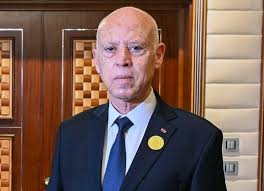
Tunisian President Kais Saied has renewed his call for national self-reliance while warning against foreign interference, during a high-level meeting at the Carthage Palace.
On September 22, Mr Saied hosted Ibrahim Bouderbala, president of the Assembly of People’s Representatives (ARP), and Imed Derbali, president of the National Council of Regions and Districts (CNRD).
The discussions centred on sovereignty, exclusion, and Tunisia’s path forward, according to an official communiqué.
In his remarks, the president underscored what he called an “irreversible battle for national liberation,” stressing that the country’s current institutions stem solely from the will of the Tunisian people. He voiced determination to confront exclusion and marginalisation, which he said continue to weigh heavily on large parts of society.
Mr Saied also reiterated his defence of a “self-reliance” policy, describing it as an alternative to restrictive international partnerships. He strongly criticised those he accused of placing themselves “in the pay of colonialist circles,” portraying their actions as a threat to Tunisia’s sovereignty.
Yet despite the firm tone, the address contained no clear roadmap to resolve Tunisia’s deepening economic and social crises.
The country faces an unemployment rate above 15%, inflation surpassing 7%, and a mounting external debt that severely curtails government spending power.
Efforts to secure a deal with the International Monetary Fund have stalled for months, reflecting a financial impasse that shows little sign of easing.
By urging “unity and continuity” as essential guarantees of stability, Mr Saied sought to bolster his institutional authority.
However, analysts argue that his combative stance towards international partners risks deepening Tunisia’s diplomatic isolation.
Many observers believe that his rhetoric, while resonating with nationalist sentiment, obscures the absence of structural reforms needed to reverse the decline in living standards for ordinary Tunisians.



